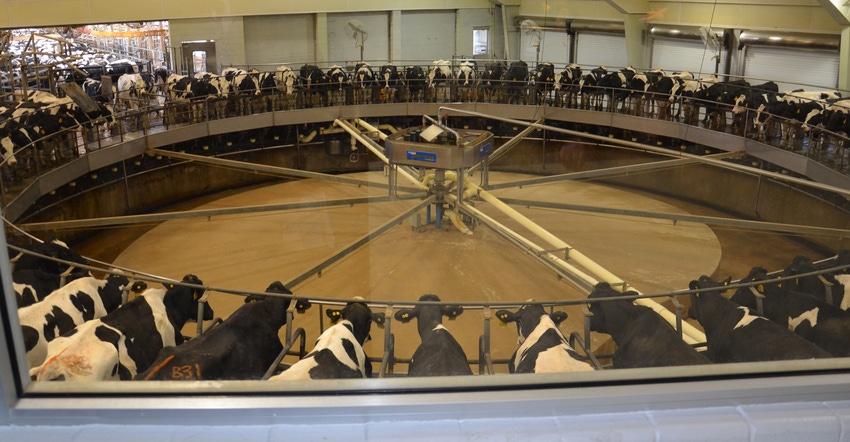June 27, 2019

If you don’t know the term “agro-security,” you should. The release of video by the Animal Recovery Mission of alleged animal abuse by employees at Fair Oaks Farms in Newton County, Ind., heightens awareness that many people, rightly or wrongly, are watching agriculture very carefully.
Exactly what led to the animal abuse at Fair Oaks Farms is still being unraveled. What’s known is that ARM released video shot by an undercover employee hired by Fair Oaks but working on ARM’s behalf. Since then, Mike McCloskey, principal owner of Fair Oaks, has released both a statement and a video taking responsibility for what occurred, and is instituting multiple measures to ensure it never happens again at Fair Oaks Farms.
Strong stand
Bill Field, Purdue University Extension safety specialist, has taught a college course on agro-security for over a decade. “Actions like these are a form of terrorism,” Field says. “The group involved in an undercover operation has an ulterior motive. They typically want to bring down a farm or major company by generating fear or public outrage.”
Field has visited Fair Oaks Farms in different roles, and reports he’s never seen anything indicative of the abuse captured in the video.
“This will become a case study in my course,” he explains. “There are three elements to ag terrorism demonstrated here.
“First, there is terrorism against animals. Those calves were obviously abused and terrorized. What some people don’t realize is that when someone undercover shoots video of animal abuse and does nothing to stop it, they’re complicit in the abuse, and as guilty as the employees. The proper action would have been to call a manager or call 911 to notify authorities immediately and stop it.”
Field compares such action to someone hearing a child crying for help and doing nothing. The person could be held criminally liable, he says.
The second element is terrorism against the farm. Groups pull out a singular incident and present it dramatically to the public, which has no understanding of what happens on dairy farms. Public outrage damages the reputation of the farm and agriculture without offering meaningful corrective measures.
Field knows what it has taken to get the dairy industry to the point where animals get good care. He grew up in New York in a county with more than 700 family-run dairy farms, and taught agriculture there for four years. Sometimes he observed animals being hit with rubber hoses, or worse. He’s been on farms where someone in a skid steer bumps cows intentionally to move them.
“I’ve seen nothing like that at Fair Oaks,” he says. “In general, those actions aren’t tolerated today. I’ve visited dairies with a ‘zero hit’ policy. If an employee hits an animal, they’re fired.
“The public doesn’t know this background. It’s like they’re separated from reality. When they see a video of abuse, they’re outraged, and they should be. But they shouldn’t assume that such practices are accepted by the farm’s management.”
Public terrorism
The third element of terrorism is against the public, Field says. He uses the classic example of the alar scare in the late 1980s. Both NBC and CBS reported that alar, a chemical used to make apples redder, caused cancer, and the outcry was huge. Millions of bushels of apples were destroyed. Mothers were photographed running to school to pull apples from lunch sacks. The claims proved to be false.
“These incidents of unfair reporting create fear amongst the public,” Field says. “Fear is the desired outcome of terrorism. When you’re fearful, you don’t feel comfortable. You lose a sense of security in life, including in the food you eat and those who produce it.
“Going forward, farmers must take these types of issues into account when implementing security measures, including when hiring and training employees.”
Comments? Email [email protected].
You May Also Like




